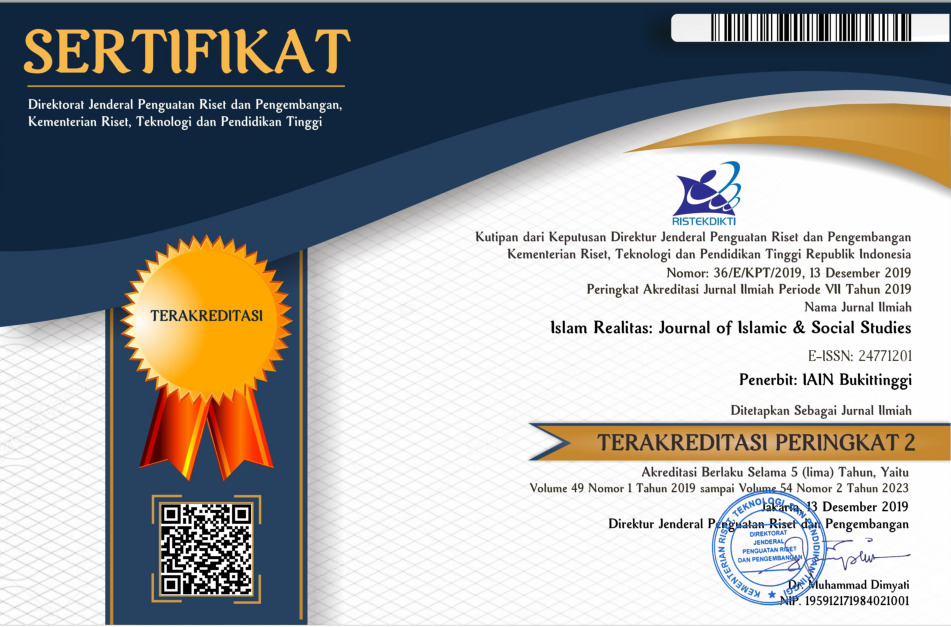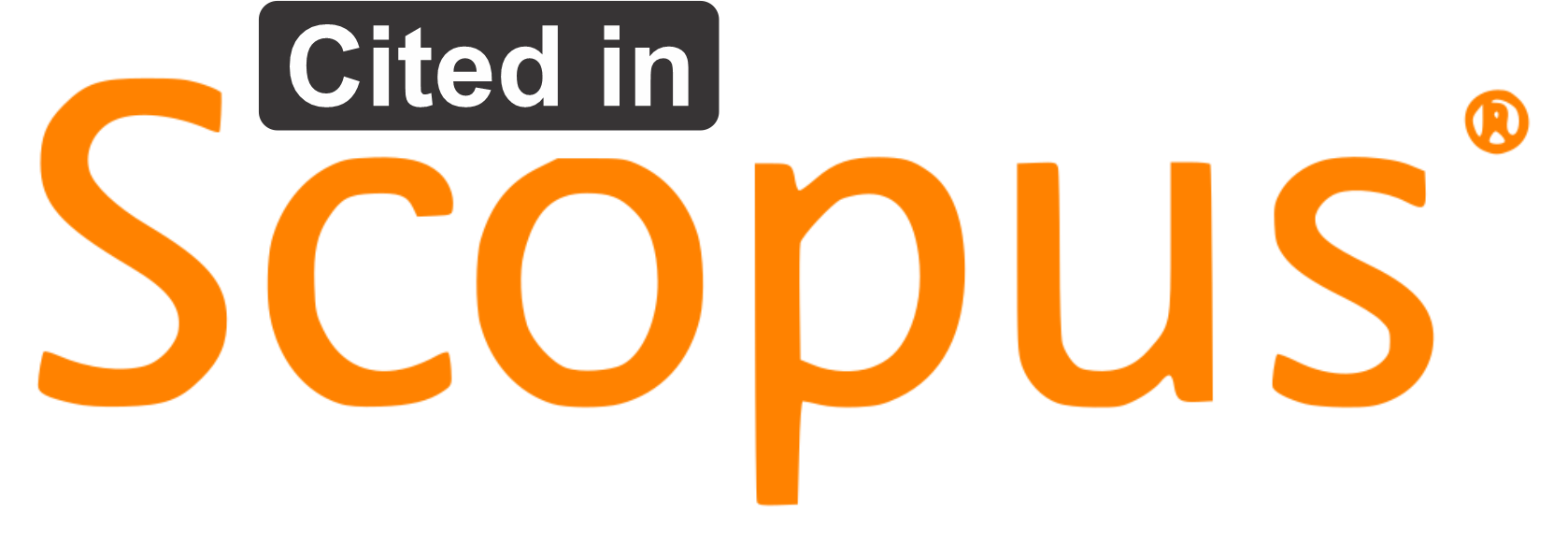BEING MUSLIM AND MOTIVATION IN LEARNING ARABIC: AN INSIGHT FROM THREE DECADES
Downloads
Text Book
al-Tawwab, R. A., Fushul fi-Fiqh al-Lughah (6th ed.). (Cairo: Maktabah al-Khaniji, 1999).
Dörnyei, Z., & Schmidt, R., Motivation and Second Language Acquisition. (Natl Foreign Lg Resource Ctr. 2001)
Gardner, R. C., & Lambert, W. E., b Attitudes and Motivation in Second-Language Learning. (Newbury: House Publishers, 1972)
Holes, C. (2004). Modern Arabic: Structures, Functions, and Varieties. (Georgetown: Georgetown University Press, 2004)
Husseinali, G., Why Are You Learning Arabic? Orientations, Motivation and Achievement. Online Submission.2004
Norton, B., Identity and Language Learning: Extending the Conversation (2nd ed.). Multilingual Matters, 2013
Pavlenko, A., Poststructuralist Approaches to the Study of Social Factors in Second Language Learning and Use. Portraits of the L2 user, 277302. 2002.
Wafi, A. A. al-Wahid., Fiqh al-Lughah (3rd ed.). (Cairo: Nahdhah Mishr, 2004)
Journal
Ajape, K. O., Mamat, A., & Azeez, Y. A., Students' Motivation and Attitude towards the Learning of Arabic Language: A Case Study of Arabic Students in Nigerian, Procedia-Social and Behavioral Sciences, 9, 2015
Aladdin, A., Non-muslim Malaysian Learners of Arabic (NMMLAs): An Investigation of Their Attitudes and Motivation towards Learning Arabic as a Foreign Language in Multiethnic and Multicultural Malaysia. Procedia-Social and Behavioral Sciences, 9, 2010
Aladdin, A., An Investigation into the Attitudes of the Non-Muslim Malaysian Learners of Arabic (NMMLA) toward Learning of Arabic as a Foreign Language. Pertanika Journal of Social Science and Humanities, 21(SUPPL), 2013.
Bakar, K. A., Sulaiman, N. F., & Rafaai, Z. A. M., Self-Determination Theory and Motivational Orientations of Arabic Learners: A Principal Component Analysis. GEMA Online Journal of Language Studies, 10(1), 2010.
Brosh, H., Motivation of American College Students to Study Arabic. International Journal of Humanities and Social Science, 3(19), 2013.
Al-Osaimi, S., & Wedell, M., Beliefs about Second Language Learning: the Influence of Learning Context and Learning Purpose. The Language Learning Journal, 42(1), 2014, p.5–24. https://doi.org/10.1080/09571736.2012.661753
Belmechri, F., & Hummel, K., Orientations and Motivation in the Acquisition of English as a Second Language Among High School Students in Quebec City. Language Learning, 48(2), 1998, p. 219–244. https://doi.org/10.1111/1467-9922.00040
Belnap, R. K., Who’s Taking Arabic And What On Earth For? A Survey Of Students in Arabic Language Programs. Al-’Arabiyya, 20(1/2), 1987.
Chandra, Y., Yusuf, A. M., & Jaya, Y., Motivasi Belajar Siswa Madrsah Aliyah dalam Mengikuti Mata Pelajaran Bahasa Arab dan Implikasinya dalam Layanan Bimbingan dan Konseling (Studi pada Siswa Madrasah Aliyah Negeri 1 Sungai Penuh yang Berasal dari Sekolah Menengah Pertama). Konselor, 5(2), https://doi.org/10.24036/jik.v5i2.6544
Clément, R., Dörnyei, Z., & Noels, K. A., Motivation, Self-confidence, and Group Cohesion in the Foreign Language Classroom. Language Learning, 44(3), 1994, p. 417–448. https://doi.org/10.1111/j.1467-1770.1994.tb01113.x
Crookes, G., & Schmidt, R. W., Motivation: Reopening the Research Agenda. Language Learning, 41(4), 1991. https://doi.org/10.1111/j.1467-1770.1991.tb00690.x
Dörnyei, Z., Understanding L2 Motivation: On with the Challenge!. The Modern Language Journal, 78(4), 1994.
Dörnyei, Z., Motivation and Motivating in the Foreign Language Classroom. The Modern Language Journal, 78(3), 1994. https://doi.org/10.1111/j.1540-4781.1994.tb02042.x
Erikson, E. H., The Problem of Ego Identity. Journal of the American Psychoanalytic Association, 4(1), 1956. https://doi.org/10.1177/000306515600400104
Ernst, C. W., The Global Significance of Arabic Language and Literature. Religion Compass, 7(6), 2013. https://doi.org/10.1111/rec3.12049
Ghenghesh, P. (2010). The Motivation of L2 Learners: Does It Decrease with Age?. English Language Teaching, 3(1).
Hammack, P. L., Narrative and the Cultural Psychology of Identity, Personality and Social Psychology Review, 12(3), 2008.
Husseinali, G., Who is Studying Arabic and Why? A Survey of Arabic Students' Orientations at a Major University. Foreign Language Annals, 39(3), 2006.
Mukherjee, S., Reading Language and Religion Together. International Journal of the Sociology of Language, 220, 2013.
Nichols, D. J., The Arabic Language Fog of War: Exploring Iraq War Veterans’ Motivations to Study Arabic Language and Culture Post-Deployment. Journal of the National Council of Less Commonly Taught Languages, 15, 2014.
Noels, K. A., Pelletier, L. G., Clément, R., & Vallerand, R. J., Why are You Learning a Second Language? Motivational Orientations and Selfâ€Determination Theory, Language Learning, 50(1), 2000.
Peirce, B. N., Social Identity, Investment, and Language Learning. TESOL Quarterly, 29(1), 1995.
Norton, B., & Gao, Y., Identity, Investment, and Chinese Learners of English. Journal of Asian Pacific Communication, 18(1), 2008.
Norton, B., & Kamal, F., The Imagined Communities of English Language Learners in a Pakistani School. Journal of Language, Identity, and Education, 2(4), 2003.
Oxford, R., & Shearin, J., Language Learning Motivation: Expanding the Theoretical Framework. The Modern Language Journal, 78(1), 1994. https://doi.org/10.1111/j.1540-4781.1994.tb02011.x
Peek, L., Becoming Muslim: The Development of a Religious Identity. Sociology of Religion, 66(3), 2005. https://doi.org/10.2307/4153097
Peirce, B. N., Social Identity, Investment, and Language Learning*. TESOL Quarterly, 29(1), 1995. https://doi.org/10.2307/3587803
Pennycook, A., Towards a Critical Applied Linguistics for the 1990s. Issues in Applied Linguistics, 1(1), 1990.
Seymourâ€Jorn, C., Arabic Language Learning among Arab Immigrants in Milwaukee, Wisconsin: a Study of Sttitudes and Motivations. Journal of Muslim Minority Affairs, 24(1), 2004. https://doi.org/10.1080/1360200042000212205
Students’ Motivation and Attitude towards the Learning of Arabic Language: A Case Study of Arabic Students in Nigerian Universities | IIUM Journal of Educational Studies. (n.d.). Retrieved November 14, 2017, from http://journals.iium.edu.my/ijes/index.php/iejs/article/view/59
Taha, T. A., Arabic as &Quota Critical-Need&Quota; Foreign Language in Post-9/11 Era: a Study of Students’ Attitudes and Motivation. Journal of Instructional Psychology, 34(3), 2007.
The Imagined Communities of English Language Learners in a Pakistani School: Journal of Language, Identity & Education: Vol 2, No 4. (n.d.). Retrieved November 14, 2017, from http://www.tandfonline.com/doi/abs/10.1207/S15327701JLIE0204_5
Thompson, I. (n.d.). Arabic (Modern Standard) | About World Languages. Retrieved November 14, 2017, from http://aboutworldlanguages.com/arabic-modern-standard
Authors who publish with this journal agree to the following terms:
- Authors retain copyright and grant the journal right of first publication with the work simultaneously licensed under a Creative Commons Attribution License that allows others to share the work with an acknowledgment of the work's authorship and initial publication in this journal.
- Authors are able to enter into separate, additional contractual arrangements for the non-exclusive distribution of the journal's published version of the work (e.g., post it to an institutional repository or publish it in a book), with an acknowledgment of its initial publication in this journal.
- Authors are permitted and encouraged to post their work online (e.g., in institutional repositories or on their website) prior to and during the submission process, as it can lead to productive exchanges, as well as earlier and greater citation of published work (See The Effect of Open Access).









